Ep23: Awareness, Attention & Telepathy
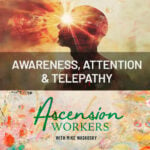
In this episode, the group explores spiritual topics such as awareness, attention, and telepathy. They discuss the interconnectedness of consciousness and the mind, with topics ranging from the nature of identity and free will to the impact of habits on attention. Personal experiences and anecdotes highlight the power of intuition and the potential for telepathic communication, especially in autistic individuals. The conversation suggests a collective shift toward greater empathy and understanding through spiritual growth and connectivity, emphasizing the importance of love in personal and societal transformation.
Next Episode: Ep24: Know Thyself up the Ladder of Prayer
All right.
Hello guys. Welcome to another fun
episode of whatever this is.
And we're, we're gonna have some fun now talking about the,
talking about the spiritual subjects, which
Spiritual subjects, which, which also are not very tied down
to any, any physical form.
And, uh, what, what I thought for today,
a great subject would be awareness and attention.
And John brought up the idea.
We could talk about telepathy too.
And I realize these are very interrelated subjects,
and I'm, I'm very excited to, to dig into what, what,
what is the heart of awareness
and what is the heart of attention,
and why is it that telepathy is available
to some people and not other people?
And what is it about awareness that allows the mind
to go into the minds of others?
And why is it that if that, if we have that ability, if,
if we're essentially like, like a Jedi on some level, if,
if human beings have the level of,
of like science fiction ability to reach out
and comprehend the, the contents of the minds
of other people, what does that say about
how we use our minds and why we use our minds the way we do?
And I guess I could start out just asking the question of
like, how do you guys view you
awareness to begin with?
What, what is it that, that, where does awareness come from?
Well, I think it's like when you're a little,
when you're born, you first become self-aware.
You know, it's like that's the first big hurdle.
You realize you have arms and legs
and you learn how to use 'em.
You know, and probably even in the womb, you become aware
of the presence of others.
Sound, things like that, you know, light.
Well, how about,
because awareness is, is that, is
that perhaps more closely connected to consciousness?
Because as in consciousness is kind of like a,
a guess perhaps an all pervasive, pervasive, um,
field and, and,
and is awareness perhaps, uh, a byproduct
of, um, consciousness,
but it's personified in, in like a person,
like I'm John, you're Mike, you're Randall,
you're Chris, type of thing.
Like, it, uh, that personification
of the individual is, is that perhaps awareness?
Yeah. It's like we're putting structure onto consciousness
when we have a type of awareness. Yeah.
Right. It's like, there's like your active sense
of consciousness, right?
Where you're, you're consciously aware of that.
Then there's also like a passive sense of consciousness too,
I think, where you're not necessarily thinking about it,
but then it interrupts you
and reminds you that it exists, for example, like a danger,
a danger, um, you know,
something dangerous enters your sphere of awareness.
You know, there's that passive that then comes into play,
you know, where normally it's kind of, it stays dormant just
below the surface doing its own thing.
I think.
So, yeah. It's interesting that you started out talking
about the infant
and, you know, the infant, it's,
we would even have difficulty remembering
what it was like being a baby.
And memory is another fascinating thread to it,
because it's like, sometimes it's on the tip of your tongue,
you know, you can access something
and somehow it still remains elusive.
It's like it should be available to you even,
and you very want very much want to have that awareness
of something that you've had the awareness of.
So where is the gap in allowing awareness
to come back into, into focus?
It's almost like there's just, just,
there's like a continuous subconscious seeking or,
or background to, to awareness.
And then the conscious mind,
and this might be sep the con,
the consciousness being separate from the subconscious mind
might be a separate discussion from the abstract concept
of consciousness as an all encompassing
foundation to reality.
But at least the conscious mind ha seems to have trouble
integrating the depth of, of potentials of perception, such
that memory has to like,
have this physical component in our brains
to help us have like ways to trace back through.
I'm not sure if that's how memory even works, but I,
but I assume that there's this, this, this
constant relationship between our conscious
and unc, uh, subconscious minds in order to allow us
to have some kind of a fluid
of useful awareness in our lifetime.
Well, uh, I do remember, which I,
I, I don't think many people have this, uh, type of memory,
some do, but I do remember being in the crib mm-hmm.
And, and kind of looking, looking at the, what's it called?
The, uh, the, the bars mm-hmm.
Type of thing, just kinda lying down and,
and feeling, I guess,
myself, right?
Uh, uh, currently the same, the same whatever you want
to call self or, or individual being or whatever,
and, and just lying there.
But looking at it like retrospectively, it's kind of like,
okay, the self or the awareness
or the consciousness then,
and even now, and also when I see other people,
I, I couldn't, I couldn't like define a boundary
around who I am in that respect,
the same way as when I look at other people,
I can't really find a boundary.
The the boundary is, uh,
I guess in a way just the body and,
and the basket of memories
and thoughts that we have
that I guess you can say defining this person from another.
But I also see it as a, a unique
whole of, of
who we are as a soul.
What some people would call a soul is this perfect division
from what some people like to call God, that that perfect
partial, well,
it's really not partial either in this respect, it,
it still feels like there's some type of
infinite, um, component to each
of us in that respect.
I don't know if that made any sense or anything on,
On the deeper levels. On the
deeper levels. It, it does seem like there's a,
you know, of one books talk about a tree of mind that we're,
that we're just, just connected like a tree.
And the conscious mind is, is the outer branches, and then,
and then the deeper roots of the, of the mind.
We're so unified with God that we, that we, we,
we can hardly look there and appreciate it.
It's too, it's too much for the conscious mind to take in
that, um, un
unless the conscious mind can, can silence itself
to a degree and cut out all the other aspects of awareness,
which, which certainly takes time and practice
and, you know, meditative effort.
Um, what, what are your thoughts on that subject, Chris?
The, the mind, uh, and the structure of mind?
Yeah. When you were talking, John, I was thinking of, uh,
that, you know, on the most subtlest level, like God and our
and, and our souls, right?
Which are probably all one thing, right?
The purest form of whatever that is.
And then you, you, and then you sort
of descend down into materiality, right?
So then on, on the lower end of the spectrum, it's,
we have a body, right?
And a brain, the brain's like the computer, right?
And, um, of course the heart is the connection to divinity,
but, but it's almost like the power at the higher level,
the divine level, the consciousness level or awareness
or power, whatever that is, it, some of it trickles down.
Some of it can sort of shine through to the physical level,
and we have experiences of, you know, higher things.
Uh, but in a way
it can only so much of that stuff can come through this,
uh, machine.
Like, it's just, it's, it's like,
because it can't, it's so different in nature
that only some of it can come through.
Although, like you said, Mike, with meditation
and stuff, like, we can definitely learn how
to utilize our mind to allow more to come
through, for sure.
But it, it, it really is that whole, just the,
i I said trickle down.
It's not really trickle down, but
because it's more like light.
Mm-hmm. It's light, there's pure light,
and then some of it gets blocked and it gets blocked.
And then, and then here we are in the physical world, and,
and, and only a portion, a small portion of that light is,
is in our consciousness.
Does that make any sense?
Yeah. It's actually segments into
what I was gonna say too, is like,
I think consciousness is like the broad state,
which includes like, you know, your, uh, like your,
you know, like sense of reality
or like your conscious thoughts.
Even your subconscious would be part of your conscious.
And then like, your awareness is kinda like the spotlight.
It's like your, where the,
where you're pinpointing your focus.
It's like your awareness requires your consciousness,
but you can be conscious and not aware.
You know, like, like the MPCs, you know,
like they're conscious, they're, they're walking around,
but they're not aware of like, are the branches aware
of the roots or are the roots aware of the branches?
You know, it's like, yeah, they're all part
of the same tree, but, you know, without one,
the other cannot exist, you know?
But, but one without the other, like for example,
the roots establish themselves
before the branches come into existence.
So like, the awareness would be the leaves, like, you know,
soaking up the sun and Oh, yeah.
And feeling all the wind and rain and stuff like that.
But the roots are really the consciousness of the tree.
I, I, I think, you know, I think we're kind of the same.
Yeah. That's a great analogy.
Somebody clipped that and shipped that please.
T-shirt. T-shirt. Thank you.
Yeah. I love what you said about light.
That's what I do for work. Yeah.
I, I feel like light is, is definitely like a, a,
a metaphysical way of looking at focus
and attention and awareness.
And it's like, obviously light is a, a,
almost like a symbol when we see it in the physical world.
It's like light is necessary in order to see the darkness
is not allowing us to know the darkness is a lack
of awareness represents a lack of awareness
of what's there, because you can't see it.
And so when you have light in your mind, you're,
you're seeing more,
you're, you have more potential for awareness.
So the more light in your mind,
the more you're, you're seeing.
And, and so I, I, I, you know,
we could subject go into the subject of attention now.
And, you know, I, I, I, I, you know, as a kid,
I noticed, uh,
Hold on, Mike. I wasn't paying
attention. Can you start again?
Yeah. Oh God, sorry.
Yeah. So, so the definition of attention is notice taken
of someone or something, the regarding of someone
or something is interesting or important.
Um, and it's interesting that there's so much that that,
that goes on inside of us that we just disregard.
Uh, and,
and we have to pick something to, to put our attention on.
It's almost like we have, I think that, you know,
working memory of a, of a, of a mind is shown to have
of a brain and a body.
It seems to have, have certain number of things,
like 11 things that,
that the working memory can be focused on.
But it, it, but it's, it still feels like that's secondary
to the, the singular choice
that's being made in every moment.
To put our attention somewhere,
and I was gonna share the story when I was a kid, I know
that I had intuitive insights,
and I would receive information that to me,
felt like imagination.
And I, my conscious mind said, that's worthless.
I don't know why. I know that that doesn't make any sense
that I would know that, so I'm just gonna ignore it.
And I, I stuffed things down
and I'm, I, I remembered this when I was much older in my
twenties, and I learned about the value
of intuitive insight being somewhat telepathic in nature,
or precognitive in nature.
And then I actually intentionally developed that.
It had to be something that I,
I put my attention on those things with discipline more
and more to receive the information that I was being given.
And it's as simple as knowing which route
to take when you're driving to work,
or which, which food to buy,
or all these, all these different insights
where we don't know the future.
We don't know what's gonna happen. If you don't know the
future, you might as well ask your intuition,
because your intuition does know the future.
But if you don't believe your intuition knows the future,
you won't put your attention on it.
And such that you continue to benefit from
that kind of attention.
But is the focus I does, you know,
Focusing, oh, go ahead. Sorry. Go ahead, Brandon.
Just real quick. Like, you know,
like the word imagination kind of, you know, people kind
of use that to like bully people down, like,
oh, was that your party?
Or, you can probably just imagine that, or, you know,
and it's kind of like given a
negative, you know, like a fantasy.
Like, it's not, like your imagination
is a very powerful thing.
You know, you shouldn't, you know, as children we're kind
of told to shelf that, you know,
as if it's a childish thing, but it's a powerful tool.
But when it comes to like, say, uh, uh, the future,
I, is it, I know this could be a little nuanced,
but I, is, is the future
like a set in stone type of thing?
Or is there, uh, a component of, um,
choosing something out of it if indeed we have
free will to, to do that?
Yeah. Yeah.
I think, I think this is why some, some dreams.
I actually just recently researching this, you know,
there was a, there was an organization in, um, in,
in England where there was a, there was a famous dream
of like some, some mining collapse
where a bunch of children died.
And one of the girls, uh, uh, who, who died,
had a prophetic dream that was recorded
and heavily broadcast in the news that, that,
that disaster was, was about to occur.
She saw this blackness coming over the school.
And so somebody was inspired to make an organization
where they were trying to predict, uh, extremely, uh,
disastrous, disastrous events and try to avoid them.
They were never successful in avoiding them,
but they were successful in predicting them.
Um, that, that, or getting some intuitive data.
And I realized it, it seems also my own personal experience
of, of dreams telling future aspects of my, of my life, that
it's when I can't avoid it,
that it's most strongly in my consciousness,
because it's almost like it was already chosen.
And it's just like, as, as it's, I think
that's why precognition is stronger when something comes
closer into your future, that it's, it's a choice that's
so strongly made that you're not,
you don't wanna step away from that anymore.
And now you're aware of it.
Well, I had, I had an experience of 2001.
Thi this experience is knocking buts.
And, um, I, um, I had a,
a dream, but it was, but it felt more like a vision.
'cause dreams are a little bit, uh, more,
uh, discombobulated.
You can be one place or another like it.
This change really quick. This felt linear.
And I was in a scene and I died,
and then I saw myself lifting up
and going to the other, or whatever you want to call it.
And, uh, it freaked me out for about a week.
And then I forgot about it.
And then like, uh, a week later I went to, uh,
a, uh, a rave
and, uh, some questionable things were in my body.
And some, uh, really funky experiences happen there,
really, like, uh,
I wouldn't want anybody to go through that.
Very crazy. But anyways, uh, fast forward,
I was walking, uh,
'cause I was in like downtown area Toronto,
and I was walking to the closest bus stop
and I was feeling very like, oh, I,
and then I felt like I was gonna faint or something.
And then I looked around me
and I'm like, I am in my dream.
I am in it.
And like, and it was winter, and if I fell
and like passed out
or whatever, like I would've, like, it wasn't in like,
uh, uh, a widely, uh, uh,
like, uh, like where people, where a lot of people were.
It was in between the, the venue and Toronto.
And in here, it's just like a big area of like, not many,
not much foot traffic, right?
So if I fell into the snow, right?
And it was exactly like everything, the lighting, the, like,
the environment, everything.
And then I remembered that,
and then I was like, no, you're not gonna die.
You're not gonna like, and then I got out of it,
but then it got even worse as the night went on.
But, uh, the reason why I brought it up is
because it was so, like, it, it felt so definitive,
but then through, I guess my own inner will or free choice
or whatever, I was able to avert myself from,
uh, getting into that, uh, receiving that fate, for
Example. That's awesome. Yeah.
That, that totally makes sense.
That, I dunno if that's like a higher aspect of the self
that's giving you that, that dream,
or if it's like just you, that's just what we do when we're,
when we dream, is that we can go
Exploring, or if the future is written
and these large traumatic events
or powerful events make ripples,
would ripples react like a stone in the, you know,
on the surface of the water in which you'd feel 'em all
around from the past, the future, and in between, you know?
'cause I remember in the same year, 2000, 2001,
I woke up from a nightmare,
and it was like, I knew about nine 11, not specifics,
but I knew that a dark event would come
and it would change the world.
And I ended up writing a whole, um, one of those yellow tab,
or yellow, uh, notepads full,
it wrote a whole page about, you know, something's coming.
It's a dark event, it'll change the world forever,
America, you know, all this stuff.
And then nine 11 happened,
and I was like, whoa, I felt something
coming. You know? Mm-hmm.
Yeah, that's a very common one.
So I wonder if maybe we do have the free will to interact
with these things and make choices and stuff like that,
but certain parts of that free will are contained within
a set parameters, like something's going to happen.
You can maybe alter it a little and stuff like,
but something's gonna happen.
You know, like maybe there are, I don't know, milestones
that are unchangeable, but we can alter the flavor
or the specifics to a certain degree. I don't know.
Yeah. I kind of feel, oh, sorry, is there No, go ahead.
I kind of feel it's like all the most probable
outcomes are known
and in a, in a sense set,
but you have the choice
to choose which outcome.
Because again, if free will, like, there has to be something
with free will that's allow you
Free will in a box, you know, like you're in a box,
you can go wherever you want within the box in whatever
direction, but there's still the box of reality, you know,
or that parameters
No, I, I understand.
Like, I understand the, the whole, uh, idea of it.
But as in free will in the, the, uh,
physical and spiritual realms, they still have some type
of construct within it, obviously.
But within it, there, there are, like, I,
I guess there could be infinite,
but it's, I think it's more in the way
of probable which one is a probable path
or probable paths that you can take.
Because I, I understand that, um, like,
I don't think free will is absolute
because I can't, uh, I can't not not be here.
Wow. Like, I, I am, I'm unable, I am unable
to remove myself from the present moment.
So that's one thing that I'm unable to do.
Even if I disappeared right now
and you guys saw me disappear to you, it would be true
that I removed myself from the present moment.
But if I'm still aware
and moving through whatever landscape I'm moving through,
I'm still experiencing the present.
Like, I, I'm unable to remove myself from that.
So like, but in other ways, in the whole game
of life or whatever the, the, the, the painting
that we're making that is called our Lives, I think we have
a lot, like free will is pretty much, you know,
the ultimate thing that you can do in, in any,
any respect to your life.
I think the question comes back
to the nature of identity too.
'cause who is the one with free will
and what part of you is wanting us to experience?
And what part of you might think you don't?
And, and, and is there, is there ultimately
any more than one will in the universe?
Is there just one giant will
that has chosen this entire universe exactly as it is?
And we're just imagining that we're separated from
that one will, and that our will somehow apart from it,
Well, Certainly our actions have an effect, right?
Like, you know, the classic example is if you drink
a ton of alcohol, you're gonna have a
headache the next morning, right?
Like, you know, can you drink a ton of alcohol
and then just decide, yeah, I'm not gonna have a headache.
No, you can't decide that
because your actions have consequences.
And that then you're gonna have a headache tomorrow morning,
and you could, you know, there's a
million analogies like that.
Also. I mean, look, religions
and spiritual teachers throughout history have told us
what we need to do, how to be a good person, how
to regulate our mind, um, how to have the best life,
provide the best lives for our families
and stuff like, well, if there was no,
if there was no chance of changing the future, then why,
why would anyone say that, uh,
that you should be a good person
and you can improve your life, right?
Like, so, so clearly, in my opinion, clearly, WW
you know, we have free will to some extent, like you said,
Randy, and also we're, we're
eating the fruits of our labor, labor from yesterday
and last week and last month and last year.
So to me, it's both.
And that's sort of the, the dance of,
of, of living, I guess, improving.
I don't know. Did that make any sense?
Yeah, that's good. Well said.
Um, It's like bumper cars,
like you can get in the ring, you know, you get in the car,
go wherever direction you want, you smack into whoever you
want, or you can just go out to the outside
and just cruise around, you know?
But ultimately you chose to get on the ride, you know?
And when your time's up, you gotta get out, you know?
Well also kind of like, uh, the one wheel
is expressing through potentially
like infinite wills
Through all of us, right?
Yeah. Through, through what,
however many, uh, conscious,
sentient beings there are in the universe.
It, it is. And they're all unique expressions
of the one as well,
because it, it just like a parent wants
to, uh, to teach their child how
to be like them.
It, so,
and hopefully may even surpass them. So, or,
Or, you know, like a parent too, with that analogy,
a parent sometimes learns through teaching their child too,
you know, and you mature indeed as you're,
as you're going along, I think maybe too.
So it's kind of like, uh, it almost feels like being
God's in training almost in cept,
because you, you have to go through like what the law
of one talks about catalyzing events to be able to learn
between light and dark and all that jazz,
and then it, to, to have that oneness.
But, uh, eve with a unique oneness.
Because if, if everything, like there's an idea, like, uh,
scientifically they call it the block universe.
Everything happens always at once in the present, right?
And everything is in that, like,
is happening simultaneously.
So if we each have personalities,
not necessarily egos, ego is just a,
a catalyzing function of the person, right?
So, uh, so we have personalities, like
for example, in the Christian religion, they, they,
they have three persons, father, son, holy Spirit,
their three persons,
but one God expressing
through three persons, right?
But they're all connected infinitely in that respect.
But yet there, if you have persons, you, you'd guess,
or at least assume that if you have a person, persons,
they would have personalities.
So like, each, each being is a unique personality.
Just like when you look at your child or family members
or whoever, they each have a unique expression
of personality.
But yet there's this drive towards unity, towards oneness,
towards that, that feeling of being together,
Nce of the love of the father.
Yeah. Yeah. It's so beautiful being a father.
It's, it's like e everything is, is a lesson that, you know,
EE every, where is a decision
to have an experience coming from?
Where, where is the, where is the desire
for play coming from?
Why some kind of play and not another kind of play?
And why do I feel that he needs to play differently?
Why do I feel that he needs
to be disciplined at a particular way?
And it's just like an ongoing dance.
It's, it's just the ongoing harmonization of, of, of wills
that, that, that are pretending that there are things,
things that are valuable besides love and besides light.
And, and the play immediately leads to, well, let's,
let's find a, a catalyst that's stronger.
Let's find, let's find the enemy in this
story, or the darkness.
Let's pretend for a while.
And that, that, that pretending is always,
it's like synchronistically mirroring other things going on
in my life when I see my child doing it.
And I just stop for a minute and appreciate that.
That's, that's me always, that's always me.
That he's, he's, he's reflecting me as, as a 3-year-old,
he's, it's really surprising.
And by using that pretend or your imagination
and all those, you know, abstracty kind of aspects
of yourself, I think that gives you a broader sense
of understanding others when they're in those moments.
Like, um, you know, like if you're pretending
to be the murderer and chasing the, the cop
or whatever, you know, cops
and robbers, you, you put yourself in a safe place to be
that robber, to be that, that bad person.
And then later in life, when you see someone who is
that negative thing
or whatever, you, you might have more of a way to understand
that, where that person's coming from, to the point
where you might even be able to predict, you know,
little things about where that person's going
or where they might go next,
or, you know, I think that's kinda like intuition in that,
you know, when you are able
to intuitively predict something about someone else,
oftentimes I think it's your eye catching something
that you, you recognize that you've experienced
and you know how you might react.
Therefore, you can predict how others might react, is like,
um, self introspection as a child, I think really blossoms
that ability to like, catch those little things.
And that gives you a broader sense of,
and then each time you think you predict something
and then you see it happen, it's confirming
or denying what you, what you thought might happen.
Therefore, you can, you know, tailor your,
your expectations for others.
And so you see yourself in other people,
especially like people that you care about,
that you've observed all your life.
Like, I used to, you know, be able to walk in after school
and I could tell when my mom and dad had a, an argument
or something was bothering them, you could just kind
of smell it in the air
and that, you know, maybe the, Hey,
how was your day is a little bit different.
So, you know, something's going on,
something don't feel right,
and you notice that tiny little deviation
and that gives you a vibe, you know,
and you're, you're feeding on all those little micro,
you know, um, little micro transactions between other, you
and other people or other people, you know, con conversing
with themselves or, you know,
you notice those little patterns and stuff.
I think you'd start developing that as a baby.
Yeah, that's, It's like all, all the attachments.
Go ahead, Chris.
No, that's interesting, Randy, what you were saying.
'cause it reminded me of, uh,
of attention and habits.
So how do habits relate to attention?
What do you guys think about that?
I, I've worked at a holistic addiction
and recovery center for like a total of three years.
So habits have a lot to do with the, uh,
the addiction process.
So like, you can get addicted to alcohol, op,
opioids, cigarette,
and, you know, uh, less, less, more, like say
with say something like we, that, that could be more
of like a, a, uh, uh, trying
to repress something.
'cause you want to feel better with that,
but in a way of like, physically harming you, not as bad,
but you can like,
not be addicted to any substance.
And you're, for example, say you're, uh,
you're predominantly angry, your body
is releasing these things called neuropeptides,
which are basically little drugs that your body releases
through the hypothalamus.
You get addicted to the anger drugs,
And you need more and more and more,
Because you're getting used to,
your body is getting used to that.
So with anything, you, you can get addicted
and you can see like a before and
after picture of like a, like a heroin before doing heroin
and a heroin after doing heroin.
They've aged, for example,
they look really scruffy at like 40, for example, right?
But you can also see an angry person before they were angry
and after similar results,
because it, those peptides, those drugs take over the cells
because it needs more of that drug.
So the emotions actually can, you can get addicted
to your emotions, literally.
So, yeah. So like your habits are like, it's worked
for you before, so let's keep going after that.
I liked that. Let me keep doing it. Keep doing it.
You're always constantly chasing that, like you said,
peptide or chasing that dragon, like they say or whatever.
But you're on a constant search to find it again,
as if it's for the first time.
But what was your original question was habits.
How do habits relate to what?
Attention. Attention. Attention. Yeah.
It's like you're craving it. You mean like,
if I did this, I got this result.
Like when you're a baby, right? Like, I cried this way.
Oh, then my mom came in.
I don't know. I guess part of that,
the other thing was like, maybe just
like people staring at their phones, right?
That's, uh, an obvious example.
People getting addicted to their phones, they're just,
all their attention goes right to their phone.
Mm-hmm. Um, and I,
I was also more curious about like, how
to change that.
Like, let's say I want to change the way I,
uh, give my attention.
I'll, I'll give an interesting example
that may be unexpected, but I think amplifying
it is actually the answer.
Because one of the things that, um, I really like the idea
of what we're talking about with chasing, uh,
but if I think it's, it's like shadows.
We're chasing, we're looking
for the light in all these different forms.
Even addiction to sugar.
The, when we have a extreme addiction to sugar, the,
it's almost like we're, we're, we're seeking to be fed.
And, and feeding ourselves is not the issue.
The issue is the, the balance
and the distraction component of it.
Where, where we're, I even find if I'm snacking
during the day, I'm getting less work done.
If I'm spending my, my focus on the, on the food.
And so fasting is ultimately what,
what I need to do to, to balance it.
But also being full will, will balance my, my,
my sugar cravings for a time.
But if it's an ongoing habit, then,
then trying the absolute, the, the opposite of it is, is
what, is what brings the balancing in.
So I feel like finding the extremes
and the experiences allows us to have more light.
And it's, it's a shadow when we,
when we feel like there's something there,
but we're just not, not quite getting it yet.
And, and it's, it's a constant remembrance
that there's something more that we're seeking.
We just haven't found the light yet.
We haven't pursued the light directly to,
and one of the phrases the law
of one uses is we're distilling, we're seeking
to have the experiences of love
and light to distill the wisdoms from that.
And once, once we've distilled what that experience has
for us, and we have the,
we have the wisdom more integrated into our reality,
then we make different choices from that point on.
Mm-hmm. Yeah, definitely. That
A hundred Percent works when you're full and,
but basically full, like from eating, there's a sense
of this is right.
But then I think even that is like a, a mock, a maka
or a mock, um, being physically full is like, it's not
what we're really looking for.
I think spiritual fulfillment is better.
Like Jesus feeding the whole room of people off of,
you know, a couple fish or whatever.
It's like when you're having a great conversation,
even if you're physically hungry,
you're not thinking about your physical hunger.
'cause you're being filled, you're being nourished
spiritually versus like physically.
And I think ultimately your cells, your
even in the tiniest fragments of atoms or, or strings
or whatever we're made of, I think
whatever keeps them healthy is light,
is is like spiritual fulfillment, love, stuff like that.
But if you're not getting that,
then you start to deteriorate.
And if you start to deteriorate, you feel hungry.
You know, you look for other ways to fulfill that, to get
that feeling of being full.
You know, like the, like you said, like, um, fasting,
it's like then you're kind of, you're,
you're forcing yourselves to seek out spiritual fulfillment
versus someone who's glutton,
they probably don't have much spiritual fulfillment,
therefore they keep nourishing with sweetss and sugars
and those things where they can get that, you know,
that habit satiated.
But in reality, that's like a drug, like anything else.
It's not really what you're,
you're craving on a spiritual cellular level, right?
Your soul wants to be fulfilled with family or love
or deep connection, great conversation,
spiritual enlightenment, all these things.
But at a certain base level,
you're just feeling it the primal way.
And with food and, and stuff like that. I think,
Yeah, I also feel like I'm a little bit ashamed
that I can't be as joyful about ice cream as my son is.
Like, the amount of happiness he can receive
from sugar is gotta try so much greater.
Well, one other is The answer. Yeah, go ahead.
Well, one other thing that I found out works spectacular
as well is just change your environment.
Go somewhere where you're not familiar with a lot of people.
Uh, like to go in nature, for example, right?
Or even go on like maybe, uh, a trip somewhere for like,
maybe three or four days a week or two.
You go to somewhere where there's, there isn't
that familiarity.
And then when you're in that state, a lot
of your stuff comes up in a different environment
and you're a, you're able to kind of like, uh, observe the,
the thought processes or the habits or the addictions.
You're able to kind of observe it through a different lens.
Because here I'm used to
my place right now, it's the same.
I go to work the same place. I go to church, the same place.
I like church because it's a great community.
Like, that's very important.
But there, there, there needs to be a, a change
of environment to be able to like really maybe
to en enjoy your new experience.
But at the same time, when you're in that uh, uh, rest mode,
you're able to kind of like see your, your things,
your stuff, your traumas
or whatever you wanna call 'em, come up to be able
to give them space to express themselves
in an energetic sense, you know? Yeah.
I think it's elevating it out
of the subconscious mind a little bit when you're
looking from a different perspective.
'cause, 'cause the familiarity leads to a lack of awareness
and attention on the things which
are just always happening in your life.
Do you think that's why people cheat in relationships?
'cause they, they get partially kind of like droned out
with the, the the same old
and they're looking for some, a new environment, a new
exciting place, a new, I think
that is one way to do it, right?
But there are other ways to, like,
you can hype yourself up to like be home.
You know? Like even if it's just like on the weekend
or when you get home from work
or something like you, yeah, sure,
you can drive your car home
and get out and just do your thing.
But like, you can take 30 seconds
and try to get pumped for it, you know?
And try to like, do you ever hear that thing
where it's like fake laugh?
You can fake laugh until you actually start laughing.
I think you can kind of like do that for yourself.
Because there was a point where, I mean, I still do it.
I like, I love just being home, you know?
And like when I start to get bored
or think about, I'm like, no, just think about
what it's like without that thing.
You know, remember a time where you couldn't pay the bills
or when you didn't have a partner and a family
or, you know, stuff like that.
Go take yourself internally to that negative place so
that you can appreciate the dismal normal
that you have, you know?
And, and get pumped about it.
'cause you're, you're healthy,
you know, you're in a good place.
You're all these things.
It's like you don't really
appreciate not having a cold other, except
for when you actually have a cold.
You're like, oh man, I took all that for granted. You know?
It's like, well,
Basically you're saying Remind yourself, you know,
Basically you're saying gratitude is the attitude
more or less, no.
Right?
Yeah. Kind of. Yeah. Yeah, exactly. Yeah.
But you can like, you know, push too far, you know,
but do you need to go to that new foreign place
or do you need to like meet that, that new person
or, you know, or is it a shortcut?
You know,
I look at them all as just opportunities.
Mm-hmm. You know?
Um, because, uh, I, I've been many places,
so to me, uh,
even going places almost has like
a familiarity to it.
Kind of like when you're, you go home.
So there, there, there is that aspect and,
but I haven't traveled like, uh, insane amounts,
but I've been to enough where that could happen.
So there has to be some kind of like inner, uh, uh,
exploration of your, the, the landscape within you,
the environment within you, as well as the one outside.
And they could be quite interchange bit. Yeah.
Traveled quite a bit and it's kinda lost.
It's like, it's like, oh, go on a trip, I guess. Yeah.
It's like, it's fun, but sometimes when I'm on the trip
and I'm there in the place, it's like, kind of just,
I'd be just as happy just being home,
sitting in my chair doing my normal thing too, you know?
Yeah. I, I found Ever been to India?
Oh, go ahead. No, No. I've, I've only been to Canada.
That's as far out of the United States.
Yeah. So if you go to some of these other types of places,
it's, it's an experience, right?
It's not just like some hotel somewhere. Yeah.
Yeah. What were you saying, Mike?
Well, it's interesting.
I've, I've, I've had many friends who want to go hiking and,
and go, go backpacking.
And I find myself, you know, preferring to find places
where I can just meditate.
It's like, this is, this is,
it feels like it was always the,
the natural logging is just about to be in the trees.
And there, there's something about being, being in the trees
that feels different from being in cities.
And that's, that's sort of been my primary craving
for getting, getting out and,
and getting to a new environment
and just getting back to something
that feels like it's completely peaceful.
And, and, but I feel like that's, that's just a symbol of
what I'm wanting internally.
I'm just wanting to use the outer to find peace within me so
that I can have the time and space to go back within.
And in theory, I'm, you know, I'm,
I wish there were more like ashrams
and 24 7 churches in this country or something.
I know there's one church in like, is it Kansas City?
That was called like the 24,
it's 24 7 House of Prayer or something like that.
The International House of Prayer. You could just go there.
And I, I wish churches were like,
there are people craving enough to be there
that you could just go and meditate in a building
with other people like that.
That's just not part of our culture here.
I'm not even sure how much that's a
part of Indian culture right now.
The, in the, in India, if they even
have places you can go 24 7, um, or if they close the doors.
How does that work, Chris? Uh,
You can go to monasteries. I don't
Monasteries. You can
Go to mon monasteries or for the ladies convents, right?
Where it's basically 24 hours, you know?
Um, uh, there, there, it's all,
there's always some type of like quiet time,
prayer time every day.
I, I think they do, I think they do liturgies like every
day too, you know, of nature. The older
I I get the more I, I like crave quiet, peace and quiet
and like, not, not even quiet,
but like, just silence from other people.
You know? It's like, you could be totally in a,
a wooded area with all kinds of noises,
but that's not the same as like, you know, being on a bus
or in a plane with, you know, even with, with,
with people are all, you know,
like an overnight flight and everybody's kind of sleeping.
It's like being in nature. I don't know.
It's like there's something there
that I don't think we're really fully aware of what that is,
but it's like, there's like a spiritual
quietness, you know what I mean?
Uh, yeah. And I hear Mike
and you, you, you guys are kind of saying the same thing
and, and, uh, in, in, in, in the sense that
I think modern day living is so,
uh, what would you call it?
Chaotic, confusing,
overwhelming, mentally.
Like, I really think every, the, the, the millions
of little details that we have to deal with every day,
it's just not how human beings have ever lived before.
Well, you know what I mean?
Uh, in, in this current line of evolution, um, you know,
when humans were simpler
and lived in nature, it was so much simpler.
Right? Now, life has become
insanely chaotic and overwhelming.
And, and individuals have to deal with that.
Like, how do you deal with that? Well, that's why, why?
It's probably why we're seeing people kind of go crazy.
And that's also why I maybe that when we go into nature,
we sort of feel, well, first of all, a lot
of things start being cleaned out
of us once we go into nature, right?
Like things just come out and like leave.
Uh, but also it brings us mentally back to a simpler time.
And, uh, I don't know. Does that make any sense?
Yeah. Yeah.
I lived in the Amazonian jungle in the Peruvian jungle
for almost, uh, four months.
The first week was a little rough
because they had no internet,
and I'd have to go up the hill to get a little bit
of signal on my phone.
Mm-hmm. Right?
And, um, and uh, end
of the humidity was rough.
The, like, all the animals
and stuff like, uh, it's like a chorus of,
of like little creepy crawleys, right?
And then after, like,
after that week of like, kind of like getting used to it,
Detoxed after That, like, it was like,
like the, the sounds of the jungle was like a lullaby.
Like when people would, would be there for a couple weeks
and, and you see them at the beginning
with the fluoride stare, you know, like the, you know,
that type of like, uh, westernized,
I live in the city thing, but then
after you just see like, they have this
human look, you can see the life back in their eyes
and this, this kind of intensity.
Uh, but a gentle intensity going through that.
And I'm telling you, it, like, for me, that was,
uh, beautiful.
Like, uh, to be able to, to be in that environment
and to feel that connection and,
and it, it's disconnection innate.
Hmm. It's funny you say a week
because it's like most addictions, I think it's right
around three days to a week of cold Turkey cutting off
of whatever it is before you start to like rebalance without
that, that thing like cigarettes
or, you know, whatever to talk, you know, cell phones,
whatever it is, after like about a week
you're done with the addiction.
And then it's just the habit, right?
Like cigarette smokers, like
after like a couple days,
they're physically not addicted anymore.
But it's all a habit. And that's the hardest part too,
is like the habit of going, you know, you know,
it's like breaking that cell phone, you know, pulling it up.
Mm-hmm. But then I bet you also
after those four months when you came back into the city
life, it was probably a different kind of, you know,
Oh, Well, every couple weeks
I'd go into the, the Iquitos, which is the,
the Peruvian city.
The Amazonian city that,
that is right on the Amazon, right?
Mm-hmm. Very cultured and busy,
but it didn't feel like, like a, a westernized city.
But still they had like,
basically anything you want in the city.
'cause I wanted to communicate with family and friends
and stuff, right?
So I'd stay there for like a day or two every couple weeks.
But, so I had kind of that,
that a ability to transition.
And, but one thing I did notice is like in Peru,
like the drivers seem like they're really crazy.
But I never seen an accident when I came back to the states
first day accident.
I see on a road, I'm like, these guys
drive like crazy there.
And in, in the states
or North America in general,
they follow the rules and then boom.
Right? I thought that was interesting. Yeah.
I think that's also a sign of a loss of intuition.
It's like, I think something's usually screaming at us
before we get in an accident.
Objection.
Yeah. Yeah.
And that brings me back to
what we were talking about earlier.
Um, I thought I had is that in terms of intuition,
um, I think it's just so fascinating that
as human beings, we have a consciousness, right?
With our five senses and whatever, how many senses, right?
Um, but we also have some intuitive thing coming from
we don't know where, right?
Like, uh, and it just all comes together.
Some, I I believe that when it all comes together sometimes
and you have a thought
or you, you make a decision in your mind.
Like, like it, it happened to me back in, uh,
back in 2003.
It was, uh, there was an experience that my,
we had a loss in the family
and I got some, some intuition
or things all came together.
I don't know what it was, but it was like, yeah,
you need to start meditation.
And it was just a clear, it just, I didn't even,
it's not like I heard a voice.
It was just like a known fact to me that, okay, you gotta,
I gotta start meditation
and it could have just come from nowhere.
Or I had already been interested in
meditation for many years.
I just hadn't done it. And so maybe like, there's a,
a confluence of forces, intuitive and physical and,
and, and our brains sort of figuring things out, right?
Like, that's, that's something our brains do really well,
is, uh, take in information
and then over a period of time at usually at least a day,
like your brain will figure out the answer.
Like, without you doing anything.
It's almost like your subconscious figured it out. Yeah.
I was at a seminar once this happened.
They were teaching us how to juggle.
They said, oh, have you ever juggled said no?
I said, okay, you're gonna have a partner.
Take the three balls you're gonna juggle for a minute.
First time I tried to juggle, I, I literally couldn't do it.
I, every time I would drop the balls, okay, so the,
and then the guy says, okay, that's, that's the exercise.
Good job. Sit down.
He kept presenting for about 30 more minutes.
And then he said, okay, you're going to,
you're gonna juggle again.
And I was like, oh, man, okay, first try,
I, I juggled like, se like seven or eight in a row.
And I was like, what is happening? And then I dropped it.
I mean, it, I point is over that 30 minutes
You self-corrected.
My brain was figuring out how to do it.
And then when I tried it again, it figured it,
it had already done so much work.
It just, so what I'm saying is expand that, zoom out from
that in your life or in your consciousness.
Like there are times when all of a sudden you, your,
your subconscious figured something out
and it's like, okay, that's it.
And you're like, okay, that's it.
We do the same thing. I was just talking about this to my,
um, well, my crew lead at work.
We drive a lot of heavy equipment.
And he was talking about, 'cause he loves to teach
and he loves to get people oriented on the basics
of running a machine that they'd never run before.
And he said, it's always the same.
He'll put the guy in the, well first he'll show him,
he'll operate and then he'll put the guy in the
chair all new, right?
All the controls, you explain everything
and then walk him through slowly how to do things.
And then he said, the, the moment it all,
it's always the same, he said,
after you've given all your verbal instructions
and stuff like that, is when he walks away
and the person thinks he's gone
and he's watching from a distance.
And he says, he'll watch him fumble, fumble, fumble,
he said, and there's always a moment where all
of a sudden everything just clicks.
You know? And it's just like, do, do, do.
It could be the next day
or even a week from then or whatever it is.
If you haven't touched it for a while, all
of a sudden you'll get in that machine
and it'll just be boom.
And it, it'll, it will just be a moment where you just know,
you know, it's that.
I think that's so important.
You know, and a lot of people don't realize
that they put too much pressure on themselves off the bat,
you know, but that 30 minutes on, hour off
or whatever, you know, that's,
that's key. That's that's awesome.
Tho those guys are like spiritual hackers.
Like they know how to hack the, the, the mind in
that respect to be able to get people to, to do.
And it's a great service at the same time as like observing,
I'm guessing through years of watching people do it,
and I'm sure they went through it themselves as well.
Yeah. Like as we all do it as babies, right?
We all see our parents walking on two feet,
but we're not there yet.
We might try a little trial
and then one moment it just all of a sudden, oh, I got it.
And you get that coordination that the,
your brain just forms a path, you know?
And once the path reaches its destination click.
Yeah. I certainly have to wonder if that's related to
what Rupert Childre calls the morphic resonance.
The more the morph, the morphogenetic fields that maybe,
maybe it's because other people have done it
that once you're just enough intuitive to,
to connect into maybe tele telepathically connect into the,
the vibration of that being done,
then it's like you're just another hand on the,
another finger on the hand that already knows how to do it.
And maybe that's the Akashic records too.
The Akashic mind you could call it
that, that we're tapped into.
And maybe there's, there's just
that natural intuitive impulse that we just haven't learned
how to work in to that,
into our conscious mind in that one particular way.
And once we feel it, once you got the feeling, then,
then you have the, that telepathic connection.
It's like when John said very early in this conversation
about he, he has something
that not many people have is the memory
of being a baby in the crib.
Right? And I, I, I agree.
I know exactly what you're talking about,
but I think you're phrasing it slightly incorrectly.
We all have that memory.
We just don't have the URL to get to it.
You know what I mean? Indeed. Yes,
Yes, yes. So these skills,
these skills exist.
It's just, you know, and you might have the desire to do it,
but you don't have that pathway to get to that thing.
Even if there's the, the end point
that will come into your future somewhere,
and you're, today, you have the drive.
If you push through that path hard enough, then you'll have
that, that URL, that that web address
or, you know, whatever it is to connect you to that thing.
What, what if you have without any training,
A-U-R-R-L
to Chinese boom
Chinese speaker Right now exists,
Exists, right? It exists.
Chinese exists.
You, if you have a drive to learn it,
all you lack is the connection to that knowledge.
But I'm not saying just to, to
Is exactly what you're missing to URL.
Well, I think a more, a more challenging thing would be,
do you have the URL to a language
that's never been spoken on earth?
Like where is that path? It doesn't exist here. Mm-hmm.
So you'd really have to push beyond, you know what I mean?
Chinese is, well, I'm, it's already there,
But I'm saying like Color you've never seen,
how do you contact a race that's you've never had any,
any contact with, you know what I mean? I'm that's,
That's hard. I'm Yeah,
yeah. No, I'm saying as in for example,
they call them accidentals ance.
Like a dude was on top of his roof doing some kind of like,
uh, work.
He falls, he hits his head, only speaks English
In This way. He's in a co
of he. Yeah, he, he, that's, that's,
And So that's the missing thing though,
Yeah. Is, has
that soul ever been Chinese?
If that soul has been a Chinese person,
then the u the URL is all it's lacking.
Let you finish the story though.
Yeah. Sorry. Yeah. That's okay. I forgive you.
So, um, uh, what's it called?
So the guy hits, hits his head, he goes to the hospital,
he's in a coma for three or four days.
He gets up and he's speaking
perfect Mandarin.
Perfect as in like, he's, he was born there.
He couldn't speak English for two or three days
and in, he got his English back,
but he retained the Mandarin, right?
He, he didn't learn anything or whatever.
So either it's kind of like,
or maybe a combination,
either it's in like the Morphic field
and you download it like, like the matrix in the movie.
I know kung fu type of thing, right?
I that type of download.
Or another possibility is I've heard many languages,
watched many subtitled movies.
Uh, I've lived in, um, in,
in a very multicultural environment since I was, uh, young.
So all this, all
that information is in my consciousness.
So if something, if something gets jogged in a certain way,
uh, my, my consciousness or my brain
or whatever would be able to reorganize
and be able to, to speak that language perfectly.
But the one thing that I do feel is probably, uh,
very likely is you, you would be able to access
that information, kind of like a download.
Like for example, we're, uh, when I mentioned in uh,
uh, as the suggestion in the email was these kids,
these autistic kids that are nons speakers, nonverbal, um,
they do have that ability.
Uh, their parents don't even know
that they know three or four language.
It's because they were able to, to download this information
and then express it to others.
Yeah. It's like there's some kind of
processing mechanism in the, in the intuition
or the subconscious mind.
It, once it's integrated enough with the conscious mind,
it's like you can just continuously draw the information
without having any, any difficulty in accessing it.
Um, but it, it, it gets such a weird, oh, go ahead.
Oh, I was just gonna add, I don't know if it's,
this might be a very dumb question.
Uh, should we be trying
to dig in our subconscious for this,
whatever information we want, or these
URLs as you're saying it, Randy,
It depends what it is, I guess.
Well, I think part a different take
may be that reincarnation is real.
That your soul does, after this experience of being John or,
or Chris or Mike or Randy, is that that chapter closes
and a veil is put over it, it's put on the bookshelf,
whatever, and then it rebirths itself in a new experience.
And all those previous URLs are,
although they're still there, there's no way to access them.
So something like a traumatic bump
to the head could reorganize something
and reestablish something,
not necessarily in the physiology, physiology of the brain,
but it could reconnect the brain to something in the soul.
You know, like I was gonna say earlier, it was like
that the, all of a sudden taking a hit to the head
and then you speak fluent, you know, Chinese or something.
It might be that the soul had had an experience of a life
before this life where, you know,
it's all compartmentalized in a little bubble,
and the veil is over it, of what it was like
to be a Chinese woman, and now you're an American man,
and this traumatic bump
or whatever, physi, you know, physically shook something up
and connected something,
or regrew a a tendril of whatever it is that makes us,
you know, conscious reconnecting into that old self somehow.
You know, I, I don't know if that, that could be it,
or it could be like, you know,
and I, I know kung fu you just tap into
that kashic record kind of thing.
But one of those two things is really all I can imagine.
I can't imagine any other, like, explanation for
that other than like quantum entanglement maybe, of like,
your cells could entangle with someone who is alive,
who does have those abilities
and they're transferred through o some kind
of osmosis or something. I don't
Know. So let's talk about
telepathy.
I mean, I feel like telepathy is, is a perfect,
clear example of a direction that our,
our society is moving in appreciation of this,
of this phenomenon.
And why, why would telepathy be a good thing
and why would it not be a good thing?
And, and helping us help each other.
And, you know, what the law of one book say is
that we actually, there seems to have been a, a,
a deliberate choice early in the, in the development
of the consciousness, in physical form in the galaxy.
That in, instead of using strictly telepathy,
there would be hands
and there would be, there'd be vocal cords
that would encourage us to communicate with words.
Because simply having a constant awareness
of what's in everyone else's head doesn't allow us
to learn our lessons at the same rate.
But now, if we're a society that's already so chaotically,
scattered across all kinds of ways of thinking,
if we were able to come back together in this particular
point in our evolution, I think this is, this is
more unique now that it was in the past.
But I think if we do develop the ability to telepath
with each other and understand
what everyone else is thinking.
And now I've, I've also, there's, there's two sides to this,
where some people who are very intuitive as children,
and they become overwhelmed
and they become, uh, you know,
the intuitive empath thing can cause people
to become very hurt
because they've been so open to the thoughts of others
that have been so, so draining on them.
And they have, then they have to create walls,
and then all the walls have to be broken down over time.
But if, if we're at a point where we're with people
who are willing to be loving,
and we wanna work on becoming more loving
and forgiving, then understanding what people are thinking
reduces the number of steps it takes to love
and forgiveness in, in communities which can work together.
And if we can truly learn love
and forgiveness, then then increasing amounts of telepathy
and increasingly removing the veils, the blocks
to the awareness of the thoughts of others,
I think we can continuously harmonize more
and make the planet a better place, much faster that way.
Can you define telepathy?
And maybe some of its, uh, some, some of its,
uh, examples of it in the world or something?
Sean, would you like to go into the,
what the telepathy tape says?
I haven't followed that, but I could,
I could speak from my experience.
Well, um, okay.
So, uh, telepathy is,
is not just necessarily reading one's thoughts, right?
You, you can get clear language in some cases,
but for example, one of my friends, uh,
I just talked to her a couple weeks ago.
She works with autistic kids,
and she knows at, at school, right at a school or whatever,
and she knows this one autistic kid loves this
Play-Doh, right?
And then she takes the Play-Doh
because she doesn't want him to be distracted there,
there's a wall with a whole bunch of drawers.
She puts it in one of those drawers and,
and she's like, he's not gonna find it.
Right? When she sees him,
he immediately, without like
investigating opens that drawer
and gets his favorite putty, right?
So they can see through your eyes, for example. Right?
And another thing too is, is that, uh, they,
these telepathic uh, uh, autistic kids say that, um,
if a person is not open, there's a block,
they can't really, uh, communicate with that person.
That's not open to the telepathic thing.
For example, more mothers are,
are like, uh, what's it called?
Uh, they can have this telepathic communication
with their autistic kids,
but a lot of the times their fathers, which sometimes tend
to be a little bit more like, okay, fact oriented
or whatever, they, they don't have that communication
until their father opens up
and says, okay, I see the evidence now.
Okay, I want to communicate with my kid
because I thought my kid was just this,
this non-functioning individual.
But now that they're able to communicate
through something called spelling, right, using a board
with letters on it, um, they're able to, um,
they find out their kids are freaking geniuses,
like literally like geniuses, right?
And they, they all like to, um,
all these, uh, autistic kids like to go
to a place called the Chat on the Hill.
It's like their own chat room that they go
to Etherically
and they talk about stuff there, and they figure things out.
They even found some cures for themselves
because of their autistic condition to figure out
how to help themselves get cured.
And some of those kids, like I was saying earlier about,
we were talking about the languages.
What are these autistic kids?
I think she can speak three or four languages.
And, and the thing is, is these autistic kids are
in different places in the world.
Their parents don't even know.
These two autistic kids know each other until they say, Hey,
once they, they're able to, to, to, uh, spell.
Then they say, oh, I have a friend named
here, this and that.
They're in this state or in that country.
And then they're like, is this, they contact them.
They're like, what? What's going on? Right?
So that's some of the examples from what I heard of, uh,
within the telepathy tapes.
I wanna share one more example
that I just found out about right before this call.
I, you know, it's, it's reminds me of somewhat of, uh,
you know, when Ramdas met his, his guru named Kley Baba,
and, and named Kli Baba gave just this full download of
what he was thinking about and his
past that he shouldn't have known about.
And Ramdas felt that
because he knows what I'm thinking, I feel forgiven
that he still loves me in
spite of knowing what I'm thinking.
And I, I read this example,
Katie Asher has a 17-year-old son named Houston, uh,
at a time when he was 17, um, she said
that caring for him was torture.
He would smear feces.
He, he bit his hand so hard that that,
that she could hear him grinding the bone.
He gr gRED and tantrum all night long.
No one in the family could sleep.
And eventually they started using
this method, what you call spelling.
He'd use a pencil to point to letters on the board
to make words he wanted to say.
And so right around the time he was about to turn 22, um,
he spelled, I'm special.
And she said, of course you are.
And then he said, and he spelled, I can hear thoughts.
And then she was petrified this article I found on the
cut.com, and she, she freaked out about the idea that,
that he was knowing all
these negative thoughts she was having.
And then shortly after that, he spelled,
I am the Herald of Christ.
And it's like, where, where, where are these,
where are we going with this?
It's like when, when you have these abilities, it's like,
does the spiritual, does the integration
with the soul more obvious and automatic?
Do you become messengers
for a spiritual truth when you have the deeper aspects,
deeper connections to the bind?
And you know, that love is, is the answer.
I think it's like when a person loses an arm
or a leg, they develop, you know, strength in other places.
Like when a deer takes an injury to,
let's just say it's rear right leg, the next,
the following spring, its left.
Antler will be deformed
because the body pulls from the left to heal the right.
And I think it's like, when we're born,
it's almost like character creation where, you know,
you're organized in a way where all your talent points
or all your, your ability points or your karma points
or whatever it is, when you're in the womb or developed
and you spend them all in one area,
your other areas are weaker.
And these people who are born with autism
or whatever we're calling it,
have strengths in other areas, right?
And it's like they're weak in certain areas
that we would deem normal,
but it's, we're finding that, oh, well,
they're super strong in these other, you know,
it's like telepathic ways and stuff.
It's like, to me it kind of makes sense.
It's like nature, nature has a way of doing that, you know?
And what we are, what we have
is limited in a certain way.
And, and we're trying to force these, these powers
and trying to find the, this way to this thing,
and that these people are just born and they're there,
but then they don't have the ability to like cook a meal
or drive a car or anything like that.
And it's like, we're all just as valuable as one another,
you know, have, has any, every person,
Has anybody here ever gotten like telepathic pings?
Yeah, Yeah. From people that you know
and absolutely coworkers
and, uh, you think of somebody they might be calling you
or they call you right away or whatever.
Mm-hmm. Right? That, so everybody's had that on,
on some level.
And because, like what you're saying, Randy, was that
because they, they don't have access to their body
like we do, that those other senses become
much more amplified.
And, um, and,
and they collectively decided to come out
basically this year to be able to say
that this is kind of like the next level of human,
I guess, evolution is to have
to open up the telepathic gateways, so to speak.
And there's, there's, I guess there's positives
and negatives, but I would say, uh, in the end,
it would be very positive,
because imagine everybody knows
everybody, everybody's secrets.
And the shame that I might feel
when somebody knows my s**t,
but concurrently the shame that they feel
that I know their s**t, that like the deepest, darkest,
craziest stuff that we all kind of, uh,
potentially think about, right?
Or have done things that we're not proud of
or whatever, right?
To feel that then we collectively get humbled
and then, then we can collectively move on, like,
as I was saying earlier, as single personalities
unifying in one type of, uh,
uh, consciousness, right?
To be able to move forward, right?
Uh, so it does, it, it feels very much like that,
and especially with all the stuff
that's going on in the world collectively as well,
like potential wars.
And then all of a sudden there, it seems like a lot
of them are stopping it, it,
and there's some weird statements from political figures
about like, we can bend space
and time in a, an official White House statement.
It like, things of that nature.
You're like, maybe things are moving in a
direction where there is an awakening, not just from
ideological things, but also spiritual things,
etheric things, right?
Yeah. It's being pushed into birth. Yeah, yeah, yeah.
All these things are coming together.
We're taking a worldwide laxative. I guess
It's like, we're not in Kansas anymore, but,
but were we ever, you know, was it all just a, a, you know,
an illusion, you know?
It's like we're in a bubble that's,
it's the best way I could say is like, we're in a bubble
and the bubble's collapsing, and it's like,
All right, this has been an awesome conversation.
I'm not sure if we should end now
or have any closing thoughts.
Do you guys have any other,
anything you wanted to throw into this?
Let's try to read each other's minds right now. Okay.
What am I thinking?
Cappuccino. Oh my God.
Like, that's amazing. My
God.
No, you know what? I was just thinking of saying
that same thing, that we should try
to read each other's minds right now.
I was thinking cappuccino. Exactly.
Uh, lord, well, one thing that, uh,
one final thought I'm guessing,
at least from my perspective, is, um, what these, uh,
these autistic, uh, telepathic kids say that
above all, it's all about love,
like you the love, right?
And, and a lot of them are like, they, they kind
of speak in a almost biblical
fashion, right?
And, uh, which reminds me of one, uh,
uh, a pharis.
He asked Jesus on the road, what,
what is the greatest commandment?
And he said, love God with all your heart, all your mind,
all your soul, and love your neighbor as yourself.
That those, those two statements are together.
So it's basically the greatest commandment is love.
You know,
One of the hardest things to do,
Or the easiest too With light
And the funnest.
Yeah, yeah, yeah.
Alright. I love you guys. Love.
Thank you guys. Love under this meet suit.
I'm shining for all of you, including all of you watching.
So this has been great. Thank you guys.
Indeed. Thank You. Come next time.
People: Mike Waskosky
Topics: Consciousness, Mindfulness, Spirituality, Telepathy
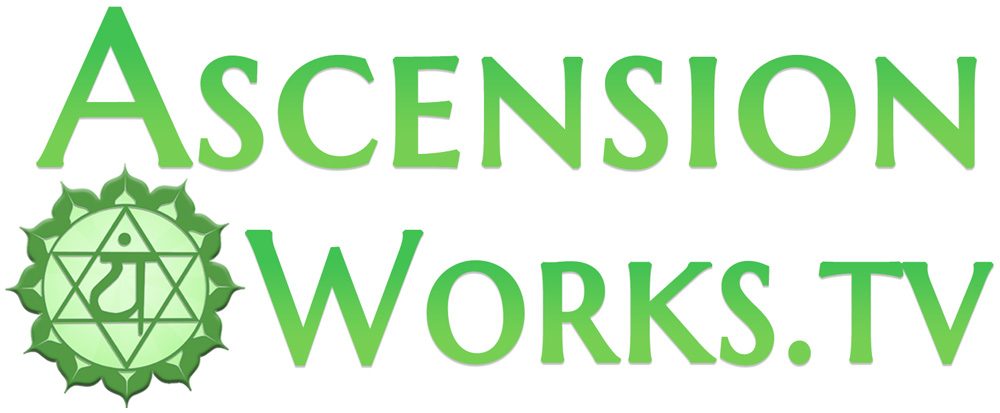
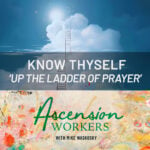
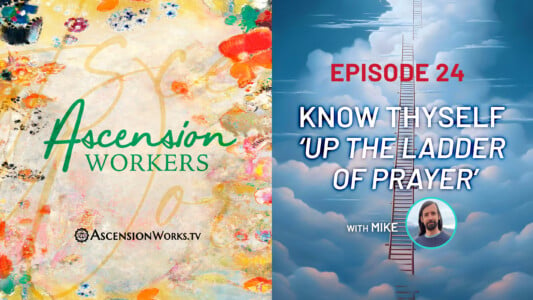
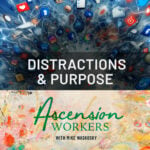
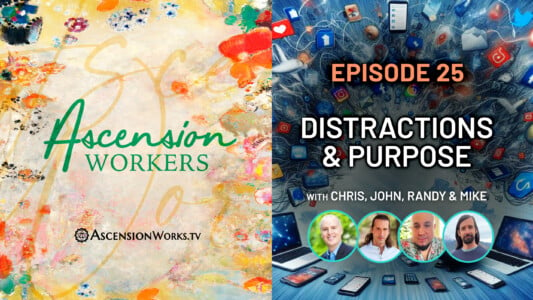
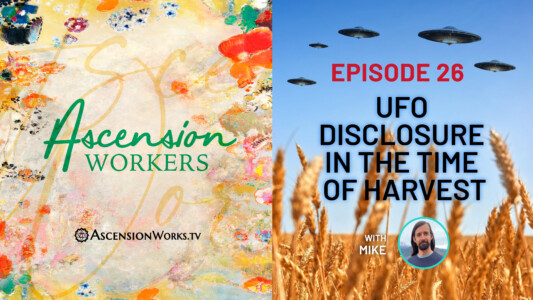
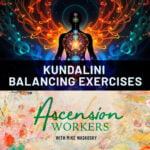
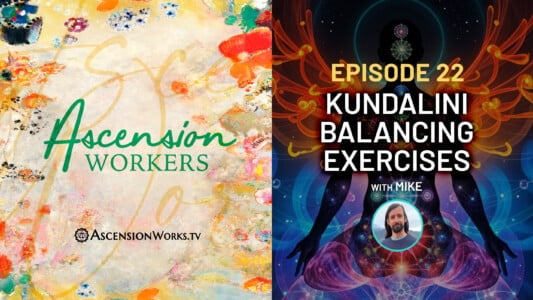


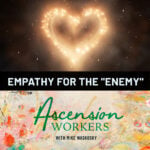
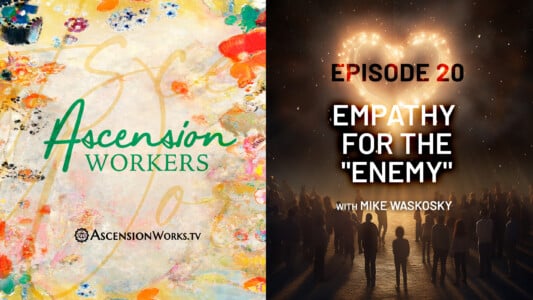
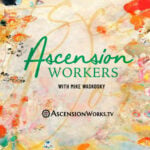
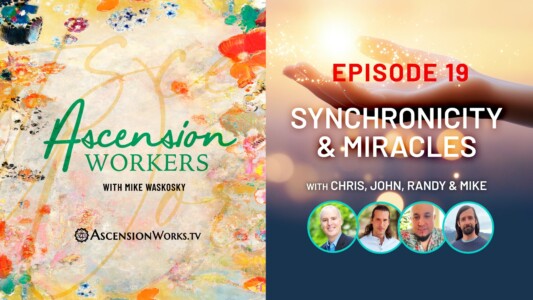
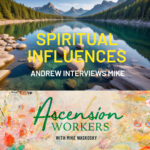
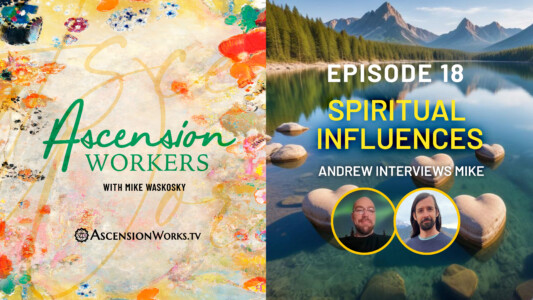


Great conversation. Thank you guys.
Awareness describes the behavior of particles in relation to how they are expressed.
Telepathy: has more to do with emotions, usually negative ones, which we are very sensitive to. For people who are hyper attentive, they can decipher what an Indvidual may be feeling because the of the emotions they emit. Your imagination then paints a picture of the most likely scenario looks like.
Everything and everyone share the same “wide area network”. We give and take from it. Hence you can dream about places you’ve never been to. The physical expression of that is the information stored in your DNA (local area network). Everything experienced by your ancestors has been passed down to you. Even languages they spoke. You’re most likely uploading from that (DNA).
Fun show!
Telepathy… In my limited experience, I can occasionally ‘hear’ what other people are saying in their heads but rarely. You’ve peaked my interest to research this more. I don’t know why it is only some people, some times and it has always been people I have never met before (strangers in public) and when I have no other thoughts in my head. The instances that I can remember, I don’t want to remember because it was painful (pain they were experiencing and their thoughts). Thanks for the show!